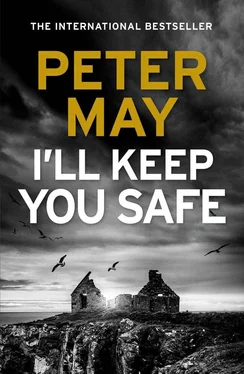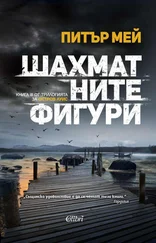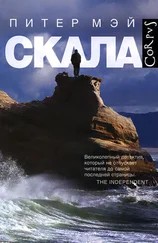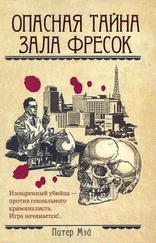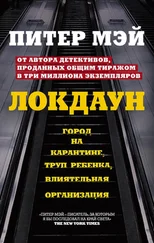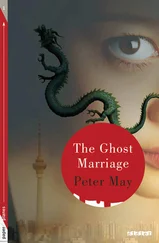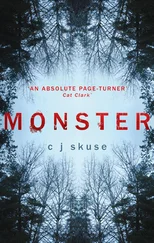She smiled and said, ‘Does your wife not feed you?’
The toast paused halfway between his plate and his mouth and he glanced at her over it, suddenly self-conscious. ‘Actually,’ he said, ‘she doesn’t.’
She cocked an eyebrow, surprised. ‘And why is that?’
He laid the toast down again, reluctantly. ‘The doctor gave her a strict diet for me. I’m not long returned to work after a heart attack a few months back. Damn near killed me, too. I’ve lost quite a bit of weight.’
Braque glanced at the white cotton of his shirt stretched taut across his belly. Not quite enough, she thought.
‘And I’ve been working out at the gym.’
‘You shouldn’t be eating that toast, and all that butter, then.’
He looked at it, shamefaced, on his plate. ‘No. I shouldn’t.’ A pause. ‘Shouldn’t be drinking coffee either.’ He looked at his watch and stood up suddenly. ‘We should go.’
Braque rose from the table and wiped a napkin across her lips. ‘Where are you taking me?’
‘You said you wanted to talk to Niamh Macfarlane. So that’ll be our first port of call. I managed to secure a four-wheel-drive vehicle.’
For someone who had grown up in Paris, a city of stone and trees and traffic, the west coast of the Isle of Lewis was a shock to Braque’s system. Miles of barren peat bog as far as the eye could see. Occasional villages strung out along a ribbon of road laid precariously across the undulating contours of the land. Not a tree in sight. Flowers and bushes planted by optimistic Leòdhasachs in barren gardens, stunted by the wind and salt that arrived with the relentless onslaught of the Atlantic Ocean. A coastline at once beautiful and dangerous. Towering cliffs and rocky outcrops punctuated by unexpected scraps of beach with the purest gold or silver sand.
It was both breathtaking and bleak, and Braque wondered how people survived in this place without the shops and restaurants she took for granted, the sun-dappled apartments that looked out on leafy boulevards, the cinemas and theatres, the roar of traffic replaced here by the howling of the wind.
Gunn swerved to avoid a handful of sheep that had wandered on to the road. They seemed entirely unconcerned by the vehicle that had so nearly ploughed into them. ‘It’s worse when the wind drops and the midges come out,’ he said.
‘Midges?’
‘Aye, wee flies. They breed in all that water out there on the moor, and emerge in bloody black clouds when it’s dull and windless. People think it’s just them the wee bastards go after. But it’s sheep, too. When the poor beasts start congregating on the road, you know the midges are out in force on the moor.’
Braque nodded. But in spite of Gunn’s colourful description had no clear idea of exactly what a midge was.
She sat in the passenger seat and watched the villages spool past, each one indistinguishable from the next. ‘There are a lot of churches,’ she said. She had counted five so far, and not seen a single soul. She found herself speculating about where it was that all the people came from to fill so many churches.
‘Aye,’ Gunn said. ‘Folk here have divided God up into different pieces and shared Him around.’
Braque glanced at him across the car and wondered if he were making some kind of joke. If he was, she didn’t get it, and he wasn’t smiling.
Several times spits of rain had caused automatic wipers to smear them across the windscreen then stop. Gunn said, ‘It’s always trying to rain here. And usually succeeds.’
But today it didn’t, and by the time the silhouette of the Cross Free Church stood stark on the horizon, sunshine washed itself across the land in waves, like pure gold water. And everything caught, however fleetingly, in its light came suddenly to life.
Gunn turned on to the Skigersta road, and by the time they reached the east coast at Skigersta itself, the sky had cleared and the Minch sparkled all the way across to the mainland. The road came to an end, and Gunn slipped the vehicle into four-wheel drive as they began their potholed journey south across the moor to Taigh ’an Fiosaich. On either side of the track, peat banks curved away across the moor, scraps of water catching sunlight, the peat itself blacker, somehow, in comparison.
‘They actually live out here?’ Braque was incredulous.
‘Oh, a good bit further on yet,’ Gunn said. ‘They built their house at a place known as Taigh ’an Fiosaich. Nicholson’s house. Named after the man who built it. Iain Nicholson, from Ness. He went to New York sometime around the end of the nineteenth century and found himself a wealthy woman to marry. Brought her back here and built a house and church out on the cliffs. No doubt with her money. Apparently all the sand for the cement was taken there by boat and carried up the cliffs a pailful at a time. The cement itself was brought out on the backs of men from Ness.’
Braque had trouble imagining it. ‘Who else lives there?’
‘No one, except for the Macfarlanes.’ He corrected himself. ‘Or, rather, just her now.’
Braque fell silent then, until she saw the profiles of the ruined house and church standing out against the dazzle of sunlight on the water beyond. To the left of them, no more than two hundred metres away, stood the Macfarlane house, shining white and incongruous in the sunshine. The blades of two wind turbines turned at speed in the stiffening breeze. There was something inestimably sad about the young couple who had built their perfect home out here on the edge of the cliffs, on the very edge of Europe, meeting tragedy and death on the streets of Paris. A shattering of dreams in a far-off land. Even to Braque, or perhaps especially to the policewoman, her home city seemed very distant now.
As what passed for a road swept around the ruined settlement of Bilascleiter towards the house, they saw two vehicles parked outside it. A white Jeep Cherokee and a Red Mitsubishi SUV. ‘Looks like she has visitors,’ Gunn said. He drew their 4×4 into one side as the door of the house opened, and a woman with the whitest skin Braque had ever seen stepped out on to the gravel. She carried a holdall in one hand, her flame-red hair whipped immediately back from her face by the wind, and Braque that saw in spite of her advancing years this was still a very beautiful woman.
She barely glanced in their direction before throwing her bag on to the passenger seat and slipping behind the wheel. She started the engine almost before her door was closed, then backed out at speed, sending chippings flying up behind her, before turning sharply and accelerating off into the distance.
Braque said, ‘I thought that islanders were renowned for their friendliness. Who was that?’
Gunn watched thoughtfully in the rearview mirror as the red Mitsubishi vanished over the near horizon. ‘That was Seonag Morrison,’ he said. ‘I don’t know her personally, but I do know that she works for Ranish Tweed. I think she might be an office manager, something like that.’
‘A good-looking woman.’
‘Oh, aye, a real beauty.’
It was the sound of the house door slamming shut, more than the roar of Seonag’s engine as she turned the key in the ignition, that woke Niamh.
She felt terrible. Long after Seonag had fled her room the previous night, Niamh had lain awake wrestling with past and present demons. To be confronted again by what she had taken for some distant and long-forgotten adolescent infatuation had further unbalanced her already fragile equilibrium. It seemed extraordinary to her that Seonag could have kept that torch burning all these years in some dark and hidden place, undiminished by time, or marriage, or children.
Sleep, too, had seemed a distant and evasive memory, until sometime after first light, when she had slipped away into the most shallow and dream-filled unconsciousness.
Читать дальше
